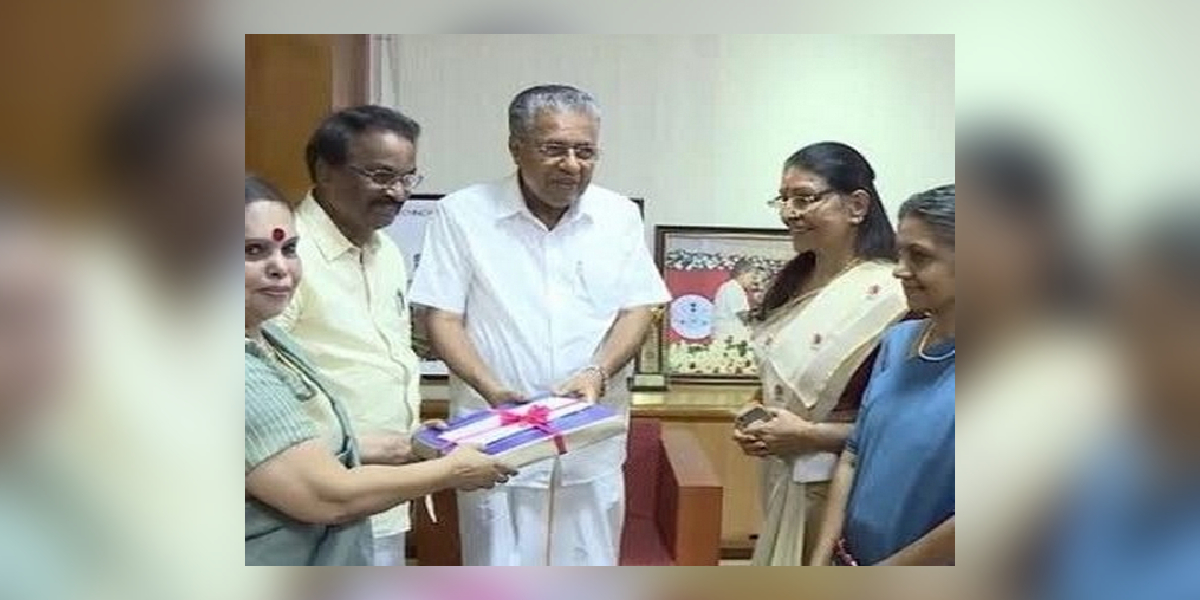Published Aug 20, 2024 | 11:14 AM ⚊ Updated Aug 20, 2024 | 6:18 PM

Justice Hema Committee Report was finally released on 19 August. (ANI/X)
The Justice Hema Committee Report, which was finally published on 19 August after several setbacks, has shed light on the severe discrimination faced by women in the Malayalam cinema.
The Justice Hema Committee Report confirmed the existence of the casting couch and highlighted the insecurity experienced by female actors in the Malayalam film industry. It also criticised the Malayalam film fraternity for being unfriendly to women and even engaging in lobbying.
These findings sparked shame and introspection within the industry insiders, particularly the Association of Malayalam Movie Artists (AMMA).
The report paved the way for prime-time debates on news channels and discussions on social media, which focused on the dark side of the film industry.
Addressing the media, shortly after the publication of the Justice Hema Committee Report, AMMA General Secretary Siddique said the association was unaware of the identities of the complainants or the subjects of the complaints.
“We need to thoroughly study the issue before reacting. We also need to discuss the matter with other organisations,” the veteran actor added.
Further, he emphasised the need for caution, noting that a careless remark could have lasting repercussions on the industry.
Actor Asif Ali, who was in Kochi for the Mazhavil Entertainment Awards 2024, expressed respect and appreciation for the victims for bravely sharing their experiences with the Hema Committee. He also called for justice for the women who spoke out against sexual assaults and extended his solidarity with them.
“Everyone in the industry deserves to be treated equally. I need to study the report further, but I have deep respect for those women who shared their ordeal. Their problems need to be resolved,” Asif said.
Actor Shine Tom Chacko also acknowledged the report’s findings ghastly. He pointed out that sexual assault occurs in every field, not just in cinema. However, he denied the existence of widespread coercion of newcomers in the industry, as suggested by the report.
Senior actor Baburaj recounted his actor-wife Vani Viswanath telling him about the lack of basic facilities for women on film sets. He also expressed concern that the situation hadn’t improved over the years.

Malayalam actor Ranjini. (Instagram)
Actor Ranjini, who filed a petition in the Kerala High Court to stall the report, clarified that she never sought to keep the report confidential. She indicated that her legal team would address any remaining issues.
Having reviewed only a portion of the report, Ranjini expressed satisfaction with its findings and welcomed the establishment of an entertainment tribunal, which she requested.
Further, Ranjini praised the Women in Cinema Collective (WCC) for their advocacy. “Without their (WCC) efforts, the Committee and the report might not have been possible.”
The Malayalam actor also highlighted the lack of a dedicated cell to address women’s complaints in the film industry and hailed the actions taken by the Justice Hema Committee as a victory for women in cinema.
In an Instagram post, senior actor-director Revathy described the publication of the Justice Hema Committee Report as a “historic moment”.
She wrote: “2:30 pm on 19th Aug 2024: A historic moment indeed – The 233-page Hema Committee Report is released by the Kerala Government after five years of several hurdles, including court stays, impleading, and hours of discussion within WCC with several lawyer friends who gave us sound advice.”
She added, “Our work now truly starts… to read, understand, and work towards implementing its recommendations.”
Revathy also expressed gratitude to those who understood the significance of the report and reaffirmed WCC’s commitment to striving for the safety and betterment of the film industry, which has given its members an identity in society.
The WCC, which played a crucial role in the formation of the Justice Hema Committee, stated that it feels vindicated in its fight for justice for all women seeking a dignified professional space in the film industry.
In a statement, the WCC said, “It has been a long journey for us! We believed that our fight for justice for all women wanting a dignified professional space in the film industry was the right fight.”
The statement further read: “Today, we stand vindicated. The publishing of the Hema Committee report is another step that WCC has taken. This is the first time in the history of cinema that we have a report on how gender works in the film industry.”
The WCC thanked Justice Hema, Ms Sarada, and Dr Valasalakumari for the long hours they spent creating this report.
“The WCC is an important political movement of our time. While we have faced criticism and ridicule, our perseverance has been crucial. Without us, the Hema Committee would not have been formed, and this report would not have been published,” the WCC statement added.
“Our commitment to exposing the deep-seated issues within the film industry stems from our love for cinema and our desire to see the industry transform for the better.”
Meanwhile, a renowned filmmaker, speaking on condition of anonymity, told South First that he strongly believes the names of those implicated should be released.
“There is a big group of genuine people who want to create good cinema without being part of such dodgy business,” he said. When asked if the release of superstar names would affect the industry, the filmmaker responded, “Nothing is permanent. We have the example of one superstar who already faced it. Nothing happened. New stars will rise.”
Grace Antony expressed concern that the Justice Hema Committee report led to a situation where all actors are being generalised and criticised indiscriminately. “Such accusations are painful, especially for those who have not had negative experiences.”
She said by God’s grace, she hadn’t faced any bad experiences in the film industry. “I got my first film Happy Wedding (2016) through auditions. My performance in the movie helped me grab more opportunities. I’ve never encountered a ‘casting couch’ situation. However, hearing about my friends’s experiences was distressing.”
About equal pay in the Malayalam film industry, Grace Antony said she cannot demand equal pay as the success of a film largely depends on the lead actor or star. “I don’t cannot expect the same remuneration as a lead star. However, fair remuneration should be ensured.”
The actor recalled that in the early stages of her career, she was not given a decent package and she wasn’t aware that it was her right to ask for a fair remuneration.
However, Grace Antony was provided with travel and accommodation allowances by the makers. She insisted on a reasonable payment only after proving her mettle as an actor.
“In any job, there is a period of struggle. Only after overcoming it can we earn a good salary. While shooting for a film, it is the responsibility of the makers to ensure safety, hygiene, and basic amenities like changing rooms and restrooms for actors and the crew. It’s not something we need to ask for,” the actor pointed out, hastening to add that she has yet to read the Hema Committee Report.
Actor-producer Rimal Kallingal, who is also a WCC member, said she would respond to the issue after going through the report. “The Justice Hema Committee report is of 235 pages. I’m yet to read it and study the recommendations. The WCC has been asking for the publication of the report for four years. I’m glad it saw the light.”
Meanwhile, Central Minister and Malayalam actor Suresh Gopi said he won’t comment on the issue, saying “Let the associations (referring to AMMA) decide on the Hema Committee Report. I have not been active in any associations for a long time, hence I won’t comment. Let the government and associations work on this together.”
Malayalam director Vinayan noted that the Justice Hema Committee Report exposed the exploitation of women and the caucus existing within the industry, which tried to destroy him. He faced an unofficial ban in Malayalam cinema for 12 years.
The filmmaker said people who tried to destroy his career before are now standing exposed in front of society.
Many top people in the industry met in a hotel in Kochi in 2008 to dissolve MACTA (Malayalam Cine Technicians Association), which worked mainly for the welfare of junior artists.
“In 2008, when I was the general secretary, you conspired to dissolve MACTA and also banned me from the industry for 12 years. I suffered a lot. You wanted to seek revenge against MACTA because we questioned key people. Since Thilakan spoke for me, you ousted him from your organisation,” he said.
“After the death of Thilakan, I went to court against the ban. Even though you tried to a lot to damage me by spending several crores of money, the Supreme Court judgement came in my favour,” he recalled.
Vinayan added that AMMA was asked to pay a fine of ₹4 lakh and other organisations, including FEFKA, were made to pay penalties. “It is poetic justice that the Hema Committee report is against these very associations.”
Further, the filmmaker dared to question the bigwigs in the industry, “Don’t you see your deformed face? The MACTA gave the courage to junior artists to speak out against the abuses they faced from senior artistes. It was a comfortable space for women artistes too. But you dissolved all that and formed an organisation called AMMA, which could work according to your whims and fancies.”
(Edited by Y Krishna Jyothi)

